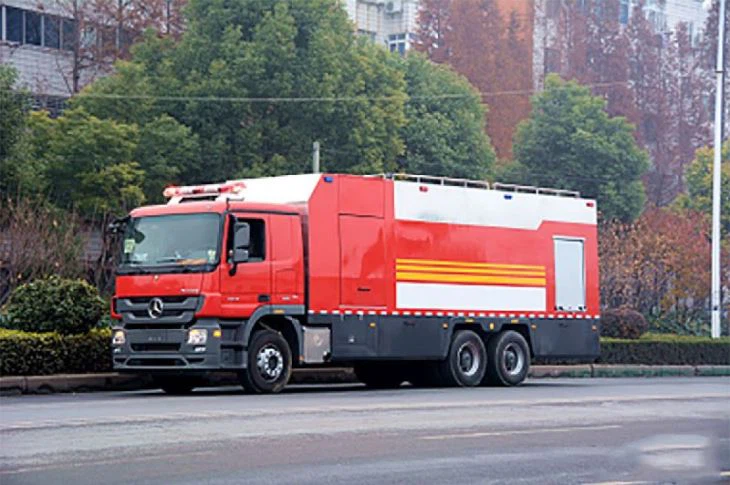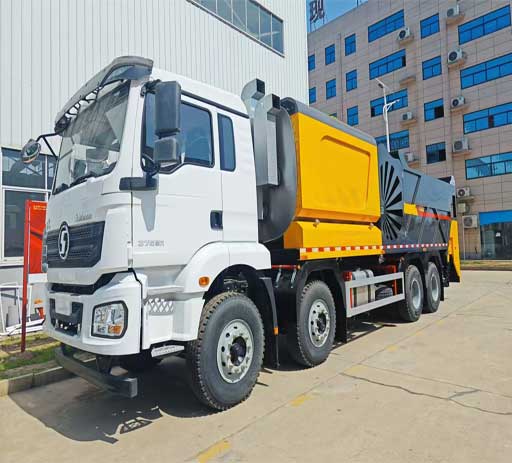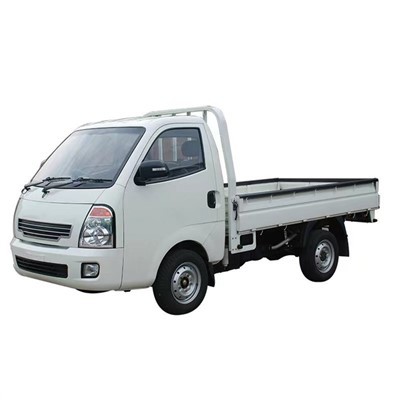Everything You Need to Know About EV Mini Trucks: The Future of Sustainable Transport

Electric Mini Trucks, or EV mini trucks, are rapidly gaining traction as eco-friendly alternatives to traditional vehicles. As cities focus on reducing carbon footprints, these compact trucks are positioned to revolutionize local transport, delivery services, and more. With zero emissions, low operating costs, and compact designs, EV mini trucks present a solution for businesses and individuals alike. This article explores the various facets of EV mini trucks, including their benefits, types, market trends, and practical applications.
What is an EV Mini Truck?
An EV mini truck is a compact, battery-powered vehicle designed for transportation and logistics within urban environments. These vehicles are often characterized by:
- Compact Size: Ideal for navigating narrow streets and heavy traffic.
- Electric Powertrain: Powered by electric batteries, which reduce greenhouse gas emissions.
- Payload Capacity: Typically designed to carry payloads similar to small traditional trucks.
How EV Mini Trucks Work
EV mini trucks operate using electric motors powered by rechargeable batteries. Key features include:
- Regenerative Braking: Captures energy during braking and feeds it back into the battery, enhancing efficiency.
- Charging Systems: Vary from standard outlets to fast-charging options, reducing downtime.
Benefits of EV Mini Trucks
1. Environmental Benefits
The most significant advantage of EV mini trucks is their environmental impact. Transitioning from fossil fuels to electric power helps lower air pollution and contributes to a cleaner environment.
2. Cost-Effectiveness
Though the initial investment may be higher, operating costs are considerably lower. EV mini trucks have fewer moving parts, reducing maintenance requirements, and electricity generally costs less than gasoline.
3. Energy Efficiency
EV mini trucks boast higher energy efficiency than traditional internal combustion engines. This efficiency often results in extended mileage per charge compared to fuel tank ranges.
4. No Noise Pollution
Electric vehicles operate quietly, reducing noise pollution, particularly in densely populated areas. This silent operation is a crucial benefit for urban logistics and delivery services during off-peak hours.
5. Government Incentives
Many governments offer financial incentives for purchasing electric vehicles, including tax rebates and grants that can significantly reduce the total cost of ownership.
Types of EV Mini Trucks
1. Cargo EV Mini Trucks
Designed primarily for transporting goods, these trucks have specialized load areas and varying payload capacities. Examples include:
- Magna Electric Mini Truck: Known for its robustness and payload flexibility.
- Watt Electric Vehicle Company: Focuses on sustainable materials and construction techniques.
2. Utility EV Mini Trucks
These trucks are versatile, suitable for both personal and commercial use. They often feature customizable components to suit various jobs.
3. Compact EV Mini Trucks
Smaller than typical mini trucks, these vehicles are perfect for personal use, short-distance deliveries, or as a city utility vehicle.
4. Off-Road EV Mini Trucks

Some manufacturers cater to off-road enthusiasts by designing electric mini trucks capable of handling rough terrains, likely paving the way for eco-friendly adventure sports.
Market Trends in EV Mini Trucks

Growing Popularity
As urbanization continues, the demand for compact and efficient transport solutions is on the rise, contributing to the popularity of EV mini trucks.
Advancements in Battery Technology
Battery technology plays a crucial role in the range and performance of electric vehicles. Significant advancements are leading to longer ranges and shorter charging times.
Government Regulations and Incentives
Many countries are implementing stricter emissions regulations while offering incentives to promote electric vehicle adoption, driving manufacturers to innovate.
Collaborations and Partnerships
Automakers are increasingly collaborating with tech companies to enhance EV features, focusing on autonomous driving and integrated technology.
Practical Applications of EV Mini Trucks
1. Last-Mile Delivery Services
EV mini trucks have become popular in last-mile delivery services due to their compact size and ability to navigate congested urban areas, providing a more sustainable alternative for deliveries.
2. Agricultural Uses
Farmers are turning to electric mini trucks for transporting goods within farms or at markets, reducing emissions while maintaining efficient operations.
3. Waste Management
Many municipalities are adopting EV mini trucks for waste collection, minimizing environmental impact while maintaining effective waste management services.
4. Construction Sites
Construction companies employ electric mini trucks for transporting materials and equipment, demonstrating their efficiency and versatility in various industries.
Considerations Before Buying an EV Mini Truck
1. Range and Battery Life
Assess the vehicle’s range for your needs, as range varies significantly among different models.
2. Payload Capacity
Consider your typical load needs. Ensure the model you choose can accommodate your expected payload comfortably.

3. Charging Infrastructure
Evaluate the availability of charging stations in your area and consider investing in home charging setups.
4. Total Cost of Ownership
Take into account the initial purchase price, maintenance costs, and potential savings on fuel when calculating the total cost of ownership.
Examples of Popular EV Mini Trucks
1. eCargo
The eCargo is an exemplary model known for its excellent range and innovative cargo area designs.
2. Workhorse Surefly
This mini truck represents a marriage of light construction with EV technology, perfect for light-duty tasks.
3. Arrival Van
The Arrival van is gaining attention for its novel design and cost-effective operation geared towards urban logistics.
4. EV Truck from Canoo
Canoo’s EV truck model showcases versatility, suitable both for commercial use and personal transport.
FAQ About EV Mini Trucks
1. Are EV mini trucks suitable for long-distance travel?
While designed primarily for urban use, some EV mini trucks can handle moderately long distances but may require planning for charging stops.
2. How long does it take to charge an EV mini truck?
Charging times vary widely based on the charging station and battery capacity, but most can be fully charged in 4-8 hours with a standard outlet, and quicker with fast chargers.
3. What is the typical range of an EV mini truck?
On average, EV mini trucks can cover 50 to 150 miles on a single charge, depending on the model and driving conditions.
4. Can I use an EV mini truck for off-roading?
Some specialized models are designed for off-road conditions, but standard EV mini trucks may not be suitable for rugged terrains.
5. Do EV mini trucks require special maintenance?
While EV mini trucks require less maintenance than traditional vehicles, routine checks on batteries, tires, and brakes are still necessary.
6. Are EV mini trucks eligible for government incentives?
Many regions offer tax credits or rebates for purchasing electric vehicles, including mini trucks, but eligibility varies by location, so it’s best to check local regulations.
